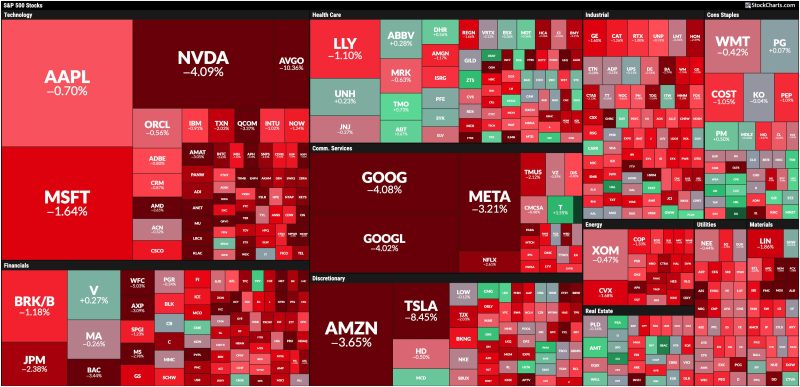Broad-Based Stock Market Selloff: How to Position Your Portfolio
Understanding the Dynamics of a Broad-Based Selloff
A broad-based stock market selloff is a scenario where the majority of stocks across various sectors and indices experience simultaneous declines in their prices. This typically occurs due to macroeconomic factors, market sentiment, geopolitical events, or unforeseen crises that lead to a general lack of investor confidence in the market. When investors start selling off their holdings en masse, it can trigger a domino effect causing prices to plummet across the board.
During a broad-based selloff, it is crucial for investors to remain calm and assess the situation rationally. Panicking and making impulsive decisions can often lead to more harm than good. It is essential to understand that market corrections are a normal part of the investing cycle and can present opportunities for astute investors.
Positioning Your Portfolio in Times of Selloff
1. Diversification is Key: One of the most effective strategies to weather a broad-based selloff is to ensure your portfolio is well-diversified. By spreading your investments across different asset classes, sectors, and geographies, you can reduce the impact of a selloff on your overall portfolio. Diversification helps mitigate risk and provides a cushion against market volatility.
2. Focus on Quality: In turbulent times, it is essential to focus on quality investments with strong fundamentals. Companies with solid balance sheets, stable earnings, and a history of consistent growth are more likely to withstand market downturns. Look for stocks of companies that have a competitive advantage, robust cash flows, and a track record of weathering challenging economic environments.
3. Maintain a Long-Term Perspective: It can be tempting to react impulsively during a selloff by selling off your investments to cut losses. However, it is crucial to maintain a long-term perspective and avoid making drastic decisions based on short-term market fluctuations. Historically, stock markets have shown resilience and have bounced back from downturns. By staying invested and focusing on the long term, you can ride out market volatility and benefit from eventual market recoveries.
4. Consider Buying Opportunities: Market selloffs can offer attractive buying opportunities for investors with a long-term horizon. When stock prices are depressed due to market panics, it can be an opportune time to acquire quality stocks at a discount. Conduct thorough research, identify fundamentally strong companies trading at attractive valuations, and consider adding them to your portfolio during market downturns.
5. Stay Informed and Seek Professional Advice: Keeping abreast of market developments, economic indicators, and geopolitical events is essential for making informed investment decisions. During a broad-based selloff, seek advice from financial advisors or investment professionals who can provide guidance tailored to your specific financial goals and risk tolerance.
In conclusion, a broad-based stock market selloff can be a challenging period for investors, but it also presents opportunities for those who approach it with a strategic mindset. By diversifying your portfolio, focusing on quality investments, maintaining a long-term perspective, considering buying opportunities, and seeking professional advice, you can position your portfolio to navigate market downturns successfully and emerge stronger in the long run.
Remember, market volatility is a natural part of investing, and staying disciplined and patient during turbulent times is key to achieving long-term financial success.

